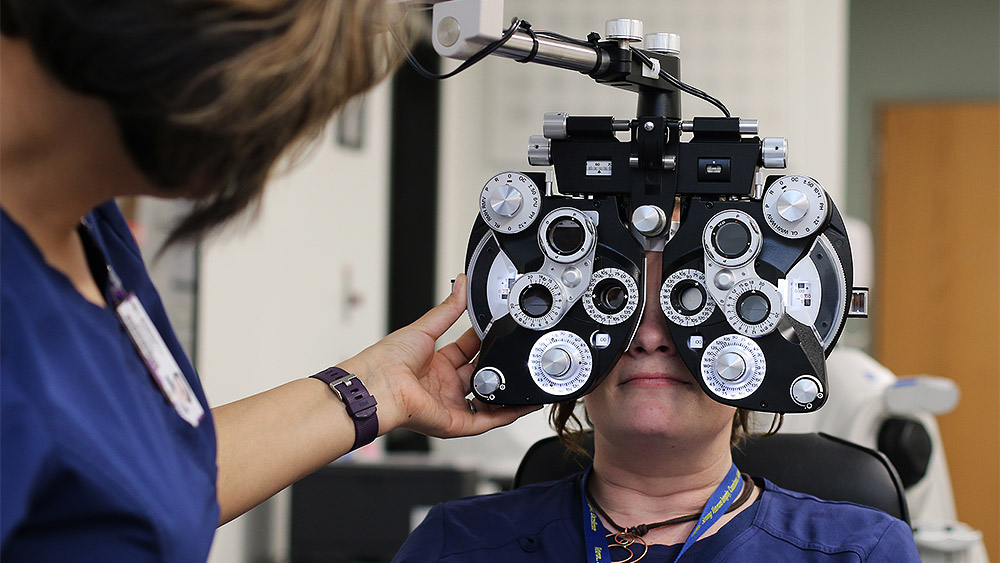Homepage

Why choose the Eye Technician program at PCC?
These programs are designed for individuals passionate about making a difference in patients’ lives while working alongside ophthalmologists (medical eye doctors and surgeons) and other eye care professionals. This career is in high demand with many employment opportunities.
- Want to become an eye technician?
Our Eye Technician certificate program teaches you to safely and accurately perform ophthalmic tests while working in a team environment. - Want to be an optician assistant?
Our Optician Assistant non-credit training program prepares you to design, measure, fit, and dispense corrective lenses under the supervision of a Dispensing Optician.
Award information
| Award | Length (attending full-time) | Financial aid eligible | Currently accepting students? |
|---|---|---|---|
| Certificate: Eye Technician | 1 year | Limited entry, see how to apply to One-Year Certificate: Eye Technician | |
| Non-credit Training: Optician Assistant | Less than 1 year |
Locations
What will you learn?
PCC’s eye technician programs teach hands-on skills that you will use every day to provide patients with exceptional vision care. You learn the technical skills and patient care skills in lecture and lab settings. In the Eye Technician certificate program, you will put your skills to use in the real world during a clinical practicum at one of several hospitals, clinics, long-term care organizations, or skilled nursing facilities in the Portland area.
What will you do?
Your responsibilities will be to provide excellent vision care for your clients in a clinic environment. Each day will call for careful observation, decision-making, problem-solving, and relationship building. Providing vision care is both challenging and rewarding.
Next steps
Applying to PCC is free and only takes a few minutes.Apply now
Limited entry awards have an additional application process. See each award page for all prerequisite requirements.
Not quite ready to apply?
We can help you get the info you need.
Related programs
PCC offers more than 90 programs.

 Cascade
Cascade CLIMB Center
CLIMB Center